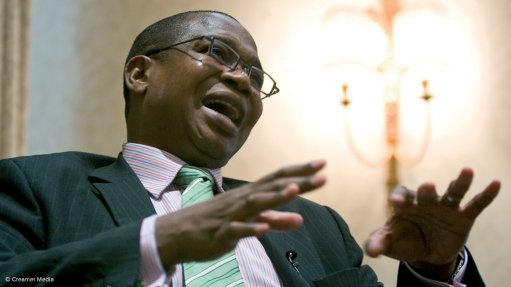
Mthuli Ncube
Photo by: Duane Daws
A new book entitled The Emerging Middle Class in Africa forecasts that household consumption expenditure across Africa could rise to $2.6-trillion in purchasing power parity (PPP) terms by 2020, having breached $1.6-trillion in 2011.
Edited by African Development Bank chief economist Professor Mthuli Ncube and the bank’s statistics department director, Charles Leyeka Lufumpa, the book also envisages that there will be more than a billion middle class Africans by 2060, representing the equivalent of 42% of the continent’s population by that date.
Using a consumption-based methodology to define upper, lower and ‘floating’ categories of middle class citizens who consume between $2 and $20 a day, the book estimates that around 320-million of Africa’s 1.1-billion people could currently be classified as being middle class.
However, it acknowledges that the ‘floating class’ – which is the biggest single category, with daily consumption in PPP terms of $2 to $4 – is barely out of poverty and remains vulnerable to external shocks.
Nevertheless, Ncube argues that the middle class has grown since the introduction, post the 1980s, of economic and political reforms that have favoured private-sector development.
He also asserts that there is “no question” that the middle class will continue to expand, notwithstanding potential political, economic and social risks to growth.
Releasing the book in Sandton on Monday, Ncube also underlined the importance of education as a key driver of both upward mobility and the resilience of the middle class in recent years, which he believes grew despite the global economic crisis.
Its emergence had also been supported by strong and sustained economic growth during the last decade, entrepreneurship that has led to larger enterprises and improved governance.
However, the degree of mutual trust within a society was also a vital ingredient, with Ncube quipping: “trust facilitates transactions”.
The decision to study the African middle class had been guided by international research showing that the middle class was associated with stability and social and economic progress, while also being a source of dynamic growth and entrepreneurship.
“The emergence of this new middle class has strong positive potential for the region. It has the capacity to increase domestic consumption; contribute to private sector growth and entrepreneurialism; boost demand for better governance and public services; improve gender equality; and raise standards of living, allowing many people to exit poverty,” Ncube concluded.
The 215-page book, which has been published by Routledge, also contains recommendations for policymakers.